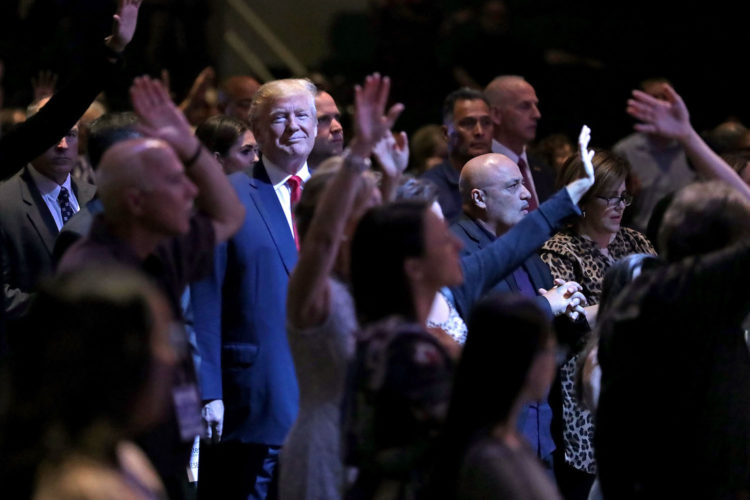Donald Trump has been a figure of notoriety in American public life since the mid-1980s.
He was a brash, young huckster of a property developer with a big mouth and a gigantic, New York-sized attitude. His whole persona, crafted in that time of excess, reeks of vulgarity and cheap, lowbrow showmanship. He hung out with supermodels and became friends with Don King, the outlandish boxing promoter, and Mike Tyson.
"@ThislsAmazing: Donald Trump and Mike Tyson http://t.co/w2Lby0QUcI"
— Donald J. Trump (@realDonaldTrump) April 16, 2015
Today, nearly 30 years later, not much has changed. He has been outrageous, contemptuous, funny and rude. He has been accused of sexism and has not shrunk from race baiting, particular with respect to the Hispanic population.
For too long, American politics appeared to be an insider game.
How could he possibly be good for democracy, one might ask?
The Trump phenomenon is actually a sign that democracy is working. Here is a man who has never sought public office and has now shaken up an anaemic political system.
For too long, American politics appeared to be an insider game. The two principal parties, the Republicans and Democrats, differed very little on the big economic questions relating to trade, business and taxation. In economic terms, Bill Clinton was arguably more conservative than Dubya. The first Clinton managed to balance the books, while Bush Jnr’s tenure of the White House led to record deficits.
Yet, if you were a worker in a factory in an industrial plant in Ohio on $30,000 a year, the Republicans and the Democrats said the same things about the economy. They both turned a blind eye to illegal immigration, while their corporate sponsors urged them to allow industrial plants to move to China, where labour was so much cheaper. The two historic parties were essentially two wings of the same bird of prey, as Pat Buchanan memorably described it in the 1990s.
The Republicans, sensing that they had nothing radically different to say from the Democrats on economic issues, honed in on social issues.
The Republicans, sensing that they had nothing radically different to say from the Democrats on economic issues, honed in on social issues. Abortion, gay rights, second amendment rights relating to guns – these all became issues of enormous political weight, way out of proportion to their real significance to the average swing voter.
Trump demolished this cosy pattern of electioneering. He talked about things that actually affected people’s pocketbooks – the industrial worker in Ohio on $30,000 a year is terrified of illegal immigrants undercutting his wages. He is also frightened that one day the manager of his plant will announce the full-scale removal of the plant to Guangdong province, China, leaving him and his workmates out of a job.
He is an avenger, raised from the deep to punish an effete and increasingly useless political class.
Trump’s targets, in the course of his campaign, have included a consensus neo-liberalism, which sees absolutely no risk to aggressive globalisation. In other parts of the world, particularly Africa, these views, often promoted by the IMF and World Bank, have come under the term ‘the Washington Consensus’. This is the edifice of policy Trump seeks to demolish.
‘Wanna stop illegal immigration? Build a wall!’ Trump says. ‘Are you sick of China sucking out our industrial base? Slap a 45% tariff on imports from China!’ Trump offers simple, tough guy solutions to serious problems. He is an avenger, raised from the deep to punish an effete and increasingly useless political class.

It is incredible to think that even as late as the summer of 2015 pundits expected the 2016 presidential election to be a race between Hilary Clinton, the wife of the 42nd President, and Jeb Bush, son of the 41st, and brother of the 43rd, President. Trump put Jeb’s dynastic ambitions to the sword. As the Donald himself said at the end of 2015, ‘We don’t have to talk about Bush, it looks like he’s out’.
Established orthodoxies and usual patterns were simply blasted away this year by the onslaught of a man who many people consider to be a lunatic fringe candidate. The American people, particularly Republican primary voters, refused to go down the prescribed route. They chose a maverick entertainer and showman, after two and half decades of Republican complacency and arrogance.
Are free markets good in themselves, or should we attempt to temper the ravaging consequences of global economic integration?
Where this leaves the Republican Party is difficult to say. Do they revert back to their country club days, protecting Wall Street interests and pretending to care about social issues in a bid to appeal to socially conservative, lower income white voters? Or do they seek to absorb many of the lessons that Donald Trump has taught them, with vulgar appeals to populism and the economically disadvantaged?
Where will future Republicans stand, we may wonder, on the question of globalisation? Are free markets good in themselves, or should we attempt to temper the ravaging consequences of global economic integration?
Trump provided simple answers to these questions. Yet the fact that he raised them, and brought them to the centre of the political debate, was testament to his skill as a politician. His rise shows that democracy, the exercise of political choices in the context of passionate debate, is thriving in America.

